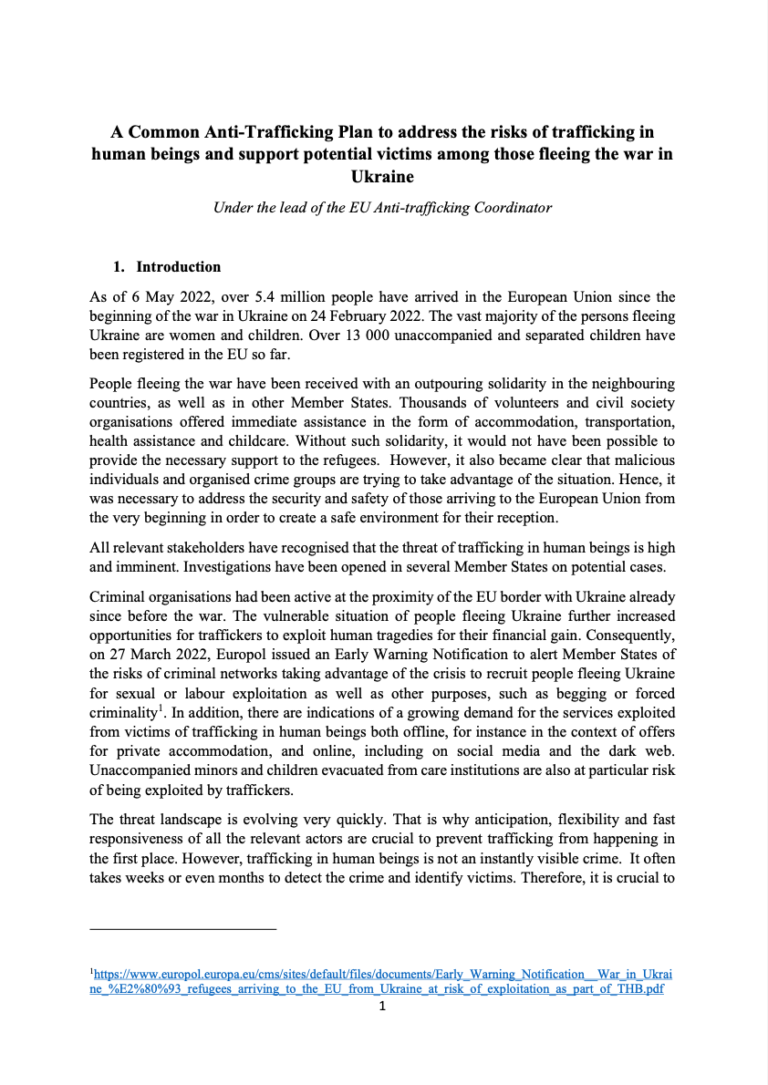As of 6 May 2022, over 5.4 million people have arrived in the European Union since the beginning of the war in Ukraine on 24 February 2022. The vast majority of the persons fleeing Ukraine are women and children. Over 13,000 unaccompanied and separated children have been registered in the EU so far.
People fleeing the war have been received with an outpouring solidarity in the neighbouring countries, as well as in other Member States. Thousands of volunteers and civil society organisations offered immediate assistance in the form of accommodation, transportation, health assistance and childcare. Without such solidarity, it would not have been possible to provide the necessary support to the refugees. However, it also became clear that malicious individuals and organised crime groups are trying to take advantage of the situation. Hence, it was necessary to address the security and safety of those arriving to the European Union from the very beginning in order to create a safe environment for their reception.
All relevant stakeholders have recognised that the threat of trafficking in human beings is high and imminent. Investigations have been opened in several Member States on potential cases.

